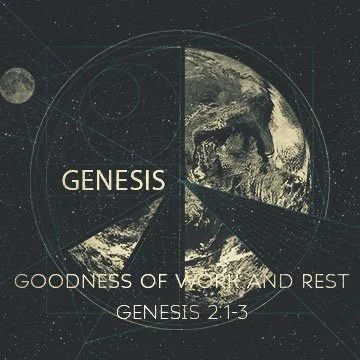All for the Kingdom
Sermon Podcast
Sanctity of Life, Leviticus 18:1-5, 21
Pastor Ben Smith explores the sanctity of human life through Leviticus 18, calling Christians to honor life, submit to God’s Word, and recognize His ownership over every person. This sermon directly addresses abortion and challenges believers to respond faithfully in a culture that often devalues life.
Satisfied in God, Psalm 17
True safety and peace are not found in power, prosperity, or public approval, but in being satisfied in the presence of God—even when enemies rise and accusations abound.
2025 - The year-end Review
“Expository preaching isn’t about imposing our ideas onto Scripture—it’s about letting Scripture speak for itself. When the main idea of the text becomes the main idea of the sermon, God’s Word shapes both the preacher and the people. In this year-end conversation, we reflect on how faithful, verse-by-verse preaching has formed our understanding of the gospel, challenged us through difficult passages, and deepened our appreciation for God’s redemptive plan revealed from Genesis to Revelation.”
The Peace of Redemption, John 1:19-34
John the Baptist had one message for the crowds: "Behold the Lamb of God who takes away the sin of the world!" In this sermon on John 1:19-34, Pastor Ben Smith examines John's testimony of who Jesus is. John pointed to Jesus and declared two essential truths: Jesus is the Lamb of God, and Jesus takes away your sin. The wait is over. The promise has been fulfilled. Behold the Lamb of God.
The Joy of Salvation, John 1:14-18
"The Word became flesh to reveal the glory of God, the grace and truth of God, and to provide for sinners to be saved from the wrath of God. See the birth of Jesus for what it is: the eternal God, coming in the flesh to be in the presence of man to reveal His glory."
The Faith that Saves, John 1:6-13
Salvation is not determined by man's worthiness but by God's authority. It is impossible for sinful man, blind in sin, to receive and believe on Jesus for salvation. But God, rich in mercy, grants with His power and authority, by grace alone, for sinners to receive and believe in faith on Jesus and to become children of God. From beginning to end, salvation is entirely the work of God—a truth that brings both humility and unshakable hope to all who trust in Christ.
The Hope of Christ, John 1:1-5
The confidence you have in a promise is dependent on the one who guarantees the promise. The assurance of the gospel is singularly founded on the personhood of Jesus. Being the incarnate eternal God through whom all things were created and in whom the eternal redemptive plan of God is fulfilled. Jesus is not limited by the fragility of man—He has always been, He is, and He will always be. The hope of the gospel rests on God alone. And this is the hopeful word of verse 5: even though the world opposes the light, it will not overcome the light. Like the sunrise that dispels the grip that darkness has on the world and demands that it surrender in defeat, so is the glory of the light of the gospel. Darkness is presently warring against the light, but it will not overcome it.
Give Thanks, Psalm 106
In this message from Psalm 106, learn how confession, reflection on God’s faithfulness, and a God-centered perspective shape genuine, lasting thanksgiving.
Purposeless Prosperity, Genesis 4:17-24
Cain’s descendants built cities, developed culture, advanced technology, and prospered in ways the world would applaud—yet they lived every moment outside the presence of God. Their story reminds us that success without God is not success at all. Prosperity apart from Him may look impressive, but it cannot satisfy, it cannot save, and it cannot endure. In this episode, we explore how the busyness of building for nothing and the foolish confidence of worldly achievement can silently pull our hearts away from what matters most—and why true purpose is found only in a relationship with Christ.
Sin’s Ruinous Rule, Genesis 4:8-16
In “Sin’s Ruinous Rule” (Genesis 4:8–16), Pastor Ben Smith examines Cain’s tragic story to reveal three warning signs of sin’s growing destruction—its mastery, its blindness, and its judgment—while calling believers to repentance and the redeeming grace found only in Jesus Christ.
Faith and Obedience, 1 Kings 17:1-16
Discover the story of Elijah and how faith and obedience open the way to experience God’s provision. Pastor Ben Smith explores 1 Kings 17:1–16, showing how God provides in unexpected ways, sustains His people through trials, and reveals His glory when we walk in faithful obedience.
Right with God, Genesis 4:1-7
In Right with God (Genesis 4:1–7), Pastor Ben Smith contrasts the offerings of Cain and Abel to reveal that true acceptance with God comes only through obedience, faith, and submission to His will. This sermon challenges today’s culture of self-worship and calls believers to honor God through a worthy offering and wholehearted surrender to Christ.
It is Good to be Near God | Pslam 73
What is the good life? Psalm 73 reveals that it is not found in comfort or success, but in the presence of God. In this message, Pastor Ben Smith shows that true faith, hope, and refuge are discovered when we draw near to Him.
Death for Life, Genesis 3:20-24
In Death for Life, Pastor Ben Smith, Sr. explores Genesis 3:20–24, showing how God’s first act of redemption in Eden points to Christ’s death and substitutionary sacrifice. Discover how faith, a righteous sacrifice, and God’s grace bring true life.
Created Male and Female, Genesis 1:27-31, 2:18-25
On the issue of gender, the Bible is very clear that gender is by divine design, God declared, and must be celebrated as part of the goodness of creation.
Curse of Sin, Genesis 3:8-19
Genesis 3:8–19 reveals the far-reaching consequences of sin. Pastor Ben Smith explains how sin breaks fellowship, disrupts cooperation, and distorts purpose, bringing guilt, pain, and death. Yet even in this dark moment, God gives a promise of hope through Christ, who conquers sin and restores what was lost.
Fall of Man, Genesis 2:25-3:7
Genesis 3 is a pivotal moment in Scripture when Adam and Eve chose to believe the lies of Satan rather than trust the will of God. Satan's work has always been to draw us away from God—through doubt, half-truths, and deception. Adam and Eve's choice in the garden was not just their story; it's ours too. As Romans 3:23 reminds us, "all have sinned and fall short of the glory of God."
To understand our own sin, we must first understand the first sin. What does their rebellion teach us about the danger of Satan's lies? At the heart of every temptation is an invitation to reject God and trust the deceiver instead of the Creator. This text teaches three vital lessons: the need to trust God's wisdom, trust His word, and trust His design.
Blessing of Marriage, Genesis 2:18-25
Today, marriage is under attack. It is under attack by those who hate God. It is under attack by those who are living in rebellious sin. And it has even suffered friendly fire from those in the church who do not fully grasp the significance and biblical foundation of marriage.
Genesis 2:18-25 is the most fundamental scripture for understanding the Bible’s view of marriage. The Bible will say much more about what marriage is and how Christians are to function as husbands and wives; however, all these other scriptures rest on the foundation of Genesis 2:18-25.
Because marriage is so familiar, you may be tempted to think that having a biblical view of marriage is automatic and assumed, but the truth is that for many today, their view of marriage is more informed by Hollywood, secular pragmatism, and politics.
How then are you to understand marriage from a biblical worldview? This testimony of God’s creation of Eve and ordaining marriage teaches three elements of a biblical worldview of marriage: that it is a good union (18-23), an exclusive union (24a), and a holy union (24b-25).
Breath of Life, Genesis 2:4-17
God made man, unique among creation, to glorify Him, dwell with Him, and enjoy Him forever.
After describing the six days of creation followed by a day of rest, verse 4 of chapter two returns to the sixth day to provide greater details and insights into the purpose and nature of man’s creation. Though at first read it may seem that what is described here is simple, you will discover, with careful study, that these verses flow from deep theological waters.
All of creation is designed to glorify God; however, unique among the creation, man is made to be in a relationship with God. This uniqueness sets man apart from every other part of creation in purpose and responsibility.
This passage’s testimony of God’s creation and provision for man reveals that man was created for God’s glory (4-7), to dwell with God (8-14), and to love God (15-17).
Goodness of Work and Rest, Genesis 2:1-3
Work and rest are both good and part of God’s created order. Rest is inseparably related to work, as is work to rest, and must be understood and enjoyed according to God’s design.
Work is often perceived negatively as a requirement, and not something good, desirable, or pleasant. This, of course, is the consequence of sin that caused work to become a burden and rest to be a snare. Likewise, though rest seems more desirable than work, it too is corrupted by sin. In sin, rest is often disconnected from work and purpose, and it becomes a sinfully lazy habit.
God resting after his labor on the seventh day and declaring it holy is a testimony both to the purpose and goodness of labor and the purpose and goodness of rest. Genesis 2:1-3 calls the church to honor God with both your work as unto the Lord and rest as a response of obedience.





















